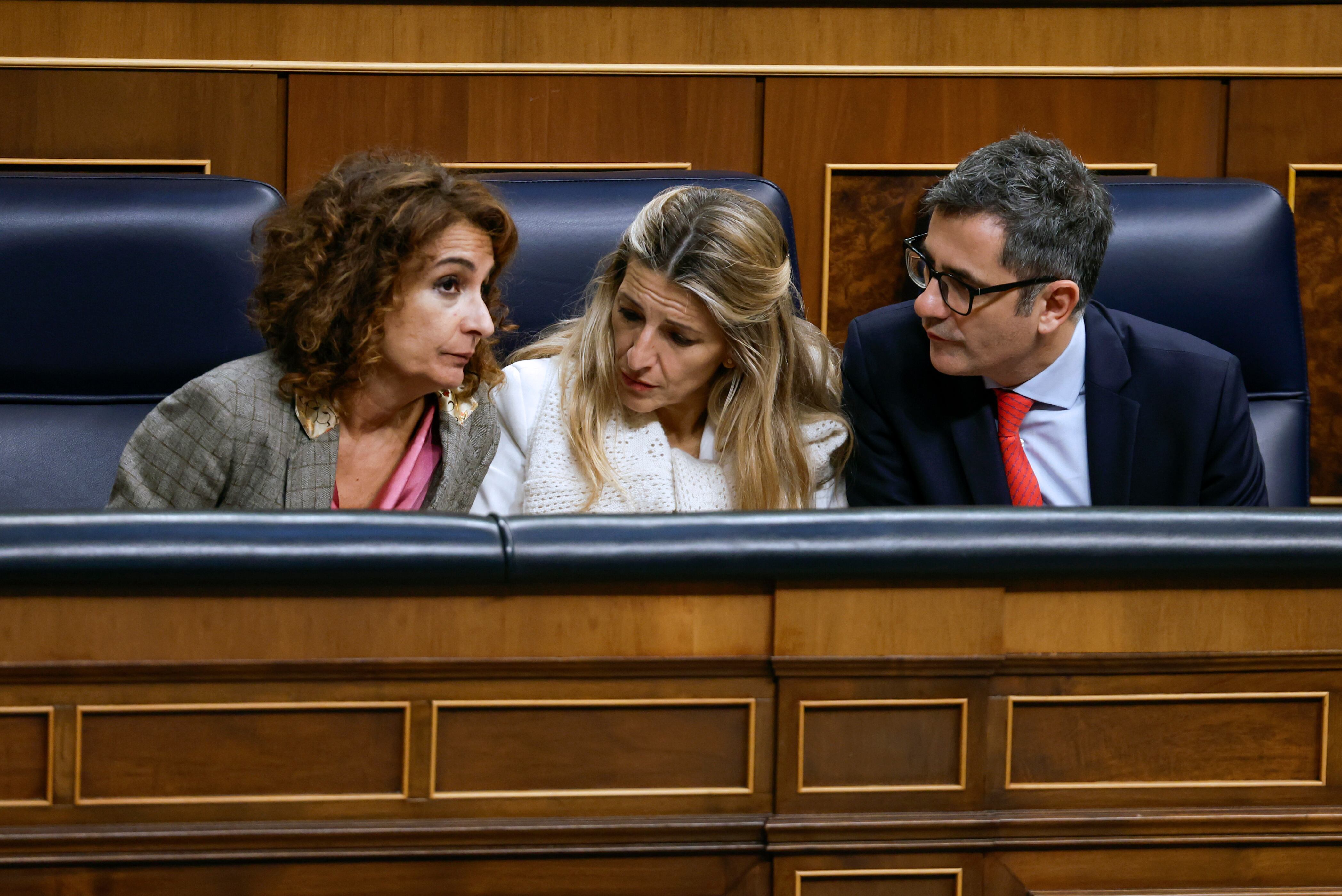A cultural work is born the day its creator conceives it. Then it grows, over weeks, months or even years. It does not reach the public, however, until long after its origin. And only then does it start making money. Any worker in the sector experiences it. And the tax reform approved this Thursday, after a tumultuous negotiation, in Congress has just recognized it. Among many other measures, the text includes one of the most requested by culture: that the Treasury take into account the intermittency of artists and technicians when requiring them to pay personal income tax. The tax thus aims to reflect the creative process: it hardly makes any profits—rather, it usually generates losses—during the long production process, while the release concentrates all the income in a short period of time. Hence, the payment to the Tax Agency and the feeling of injustice on the part of the artists traditionally skyrocketed.
Now, however, they can celebrate one of the advances that they most demanded in recent times. It involves releasing from personal income tax a part of the income from work and economic activity derived from artistic or cultural initiatives, if its amount varies greatly from one year to the next. Specifically, when the net profit for a year is greater than 130% of the average for the previous three-year period, it is established that 30% of the difference generated that year is exempt from the tax. Furthermore, the maximum base on which the reduction is applied cannot exceed 150,000 euros per year. The text explicitly names among the beneficiaries “literary, artistic or scientific works” and “performing, audiovisual and musical arts, as well as people who carry out technical or auxiliary activities necessary for the development” of these activities. It will be necessary, however, for the tax reform to pass in the Senate and return to Congress for final approval.
Spain is moving forward with a new, fairer tax system. It has been a difficult agreement that finally includes some important advances driven by @summer to advance tax justice.
🧵 I tell you the progress in this thread:https://t.co/RoMlHSfZX0
— Ernest Urtusun (@ernesturtusun) November 21, 2024
The Minister of Culture, Ernest Urtasun, immediately showed his joy with a message on social network 50,000 euros of positive return in 2025 and the average of the returns of the previous three years is 21,666.66 euros (15,000 euros of positive return in 2024, 10,000 euros in 2023 and 40,000 euros in 2022). Since 130% of the average would be 28,165 euros and in 2025 an amount is obtained that exceeds that amount, the requirement is met and the 30% reduction would be applied to the excess, which amounts to 6,550 euros. Thus, the 2025 yield for which you would have to pay taxes would be the result of subtracting said amount from the positive yield for that year, that is, 43,450 euros.”
Thus, another step is also taken on the bumpy path to finally complete the Artist Statute, some 60 measures included in a report that political groups adopted unanimously back in 2018, to create a more appropriate legal framework for creative work. . Since then, some proposals have become a reality—the compatibility between receiving the pension and income from artistic activities of any kind; an unemployment benefit that requires fewer days of contributions; or a new artistic employment contract—but others remain in the dream drawer, six years later. As of today, the adapted personal income tax is on its way to abandoning the category of unfulfilled promise.
In reality, the debate on the fiscal plan, the focus of all Congress for days, has barely mentioned this measure. After all, culture almost always occupies a minor place in political discourses. He is neither here nor expected. And when he does appear, it is usually for a cameo: a wink, almost never a leading role. This case has not been an exception either. There has been talk of the minimum rate of 15% for multinationals, the tax on energy companies, banking or electronic cigarettes. Neither the bill summary nor the vast majority of conversations cited the “sixtieth additional provision,” placed toward the end of the 184 pages. And introduced thanks to an amendment by the Government’s minority partner, Sumar, during the passage of the reform by the Finance Commission. There, Sumar, PSOE, Bildu, ERC, Junts and PNV voted in favor. PP and Grupo Mixto, where Podemos is located among others, abstained. Only Vox opposed.
Although the sector is relatively concerned about the camouflage of the measure within the reform. What counts is that one of the greatest workhorses of culture is galloping towards entry into force. Hence, eyes now turn to the other pillars that still remain to raise the Artist Statute: the recognition of specific occupational illnesses, such as hoarseness for a singer; a comprehensive review of the self-employed cultural worker, with quotas and benefits for cessation of activity that also take into account intermittency; or the modification of the Royal Decree of 1985 that still regulates the employment relationship of artists in some areas, since many were updated in 2022: the regulation of workers under 16 years of age or the reduction of abuses in hiring part time, among other aspects. The measures are unlikely to generate much cross-party debate. Although culture asks politicians for the same thing as everyone else: facts.

